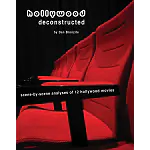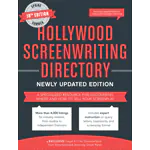Tag: writing
Script Studio® Screenwriting Software App Wins Xojo Design Award
May 1, 2019 (London, UK) – UK technology company Nuvotech is awarded the 2019 Xojo Design Award of “Best Vertical Market App” for its popular creative writing software Script…
Writing the Perfect Ending
Yep, they can make it – and they can break it! In one fell swoop you have to tie-up any loose ends and satisfy an audience’s expectation. Not an…
Create Complex Characters that are not Black and White in Nature
How often in life do you meet someone that is flawless? Conversely, how often do you meet someone that does not have a single good bone in their body? …
The Power of the Flashback
Flashback can be a clever device or it can be an annoying one. If you use it sparingly and don't rely on it too heavily to tell your story…
Remember the Golden “Rule of Three” for Writing
I know some of you writers out there – yes, you know who you are -- don’t like rules and formulas and are ruthlessly resistant to following any kind…
Conflict is the Key to Writing a Good Story
Nothing in life is easy, so why should “movie life” be any different? Whether you are writing a drama based on true life events or a science fiction movie…



